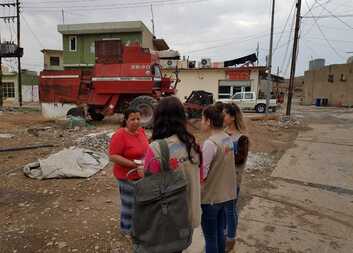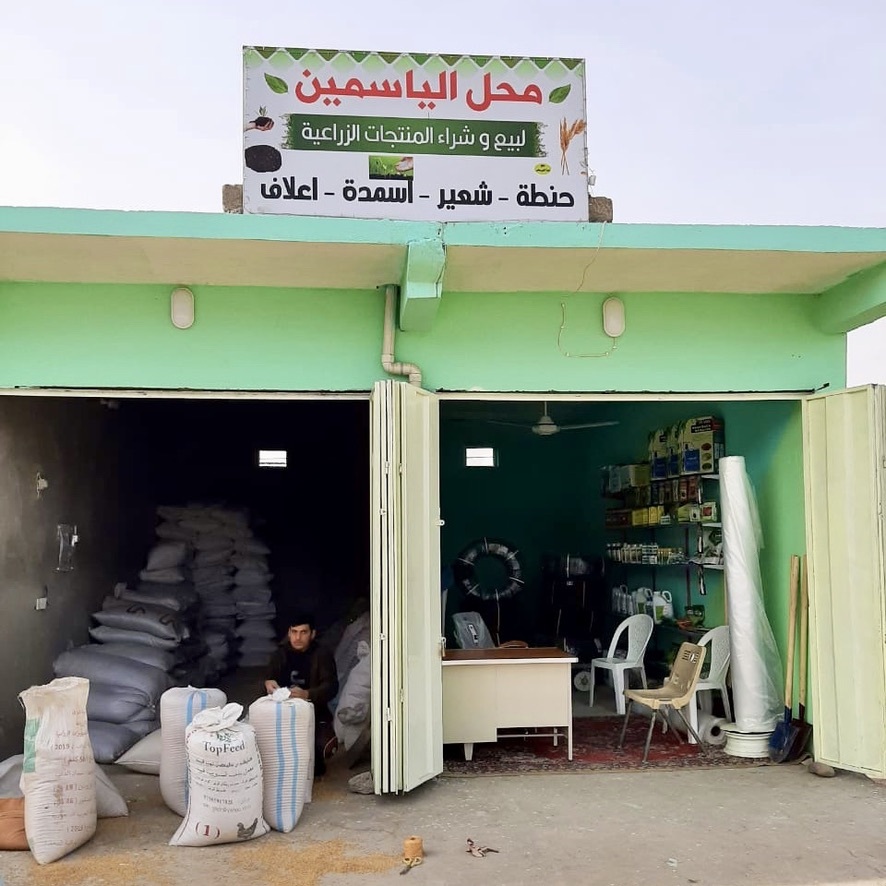Caritas Czech Republic will carry out a new project in Iraq with the financial support of the United Nations Development Program (UNDP). This is the biggest project not only in the history of our Humanitarian Aid and Development Cooperation Department, but also in the history of the European network of Caritas organizations. With the grant of 5.4 million USD we will help local people to restore their livelihoods and infrastructure in the Heet district, which has been damaged by a long-running war.
“The project is unique in that it combines new job opportunities with community-based projects. Which means that the people of the Iraqi city of Heet will not only get a job and thus a source of livelihood for their families, but will also help rebuild local infrastructure and services, which were often destroyed in the war. We are very happy that our local team in Anbar can start working on the project,” describes Kateřina Velíšková, the manager for Middle East in Caritas Czech Republic.
Iraq is still facing the consequences of years of armed conflict and an unstable political situation. The crisis has been exacerbated by the coronavirus pandemic, which has resulted in the closure of many local businesses, creating further financial uncertainty. Caritas Czech Republic has been working in Iraq since 2015 and focuses on restoring livelihoods and creating new jobs. Thanks to financial support from UNDP, we can help more people in need to be able to stand on their own two feet. This time we will focus on enhancing resilience of vulnerable communities in the Anbar Governorate, namely in the Heet district.
Rebuilding local infrastructure
Heet district lies in the Anbar Governorate, northwest of Ramadi, the provincial capital, along the Euphrates River. The invasion of the so-called Islamic State has driven most of the region's inhabitants from their homes. Since the town of Heet was retaken in 2016, Iraqis gradually began to return back. By 2019, over 175,000 of them had returned. However, most of them are struggling with damaged infrastructure and often do not have adequate place to stay. Many locals still do not have a sufficient source of livelihood.
The new project of Caritas Czech Republic with the financial support of UNDP will focus on these issues. Locals, especially from the most vulnerable communities, will be given the opportunity to rebuild local infrastructure in the Heet region. They will not only get a job and be able to provide for their families, but they will also help to rebuild the area in which they live. Which will also result in more Iraqis who fled the war to be able to return to the region.
Caritas Czech Republic will support 2,600 Iraqi women and men in this way. Firstly, they will undergo trainings focused on skills development and they will receive a certificate that will increase their chances of getting a job in the future. After the training, they will start working on the renewal of local infrastructure and take part in activities such as cleaning campaigns, maintenance and development of public areas, water network reparis and expansion, electricity grid repairs or repairs of vital roads.
Supporting local businesses
In the Heet region, we will also support local businesses through small grants, trainings and mentoring. This will offer a chance for them to succeed in the long run. Moreover, we will also offer job placements for young women and men who face unemployment and a lack of job opportunities. These young people will receive trainings and career guidance as well as scholarships.
Thanks to the new project, we will contribute to reducing poverty and financial insecurity for Iraqis in the Heet district. The activities will support returnees, internally displaced persons and their host communities. The partnership with UNDP confirms that Caritas Czech Republic is a highly rated partner of UN agencies.








